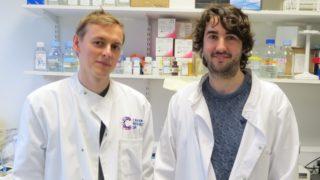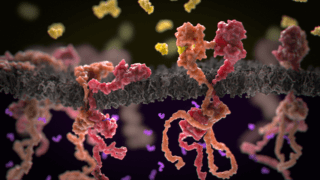Category: General News
Search News
Categories
Archives
Research suggests improved detection rates are needed to maximise cancer prevention
8th June 2018
Current detection strategies are found to have identified only 2.6% of the BRCA gene mutation carriers in the Greater London population, according to a recent study published in the Journal of Medical genetics. The findings of the study, performed by researchers from the BCI’s Centre for Experimental Cancer Medicine, led by Dr Ranjit Manchanda, suggest that enhanced and new approaches are required to maximise the opportunity for breast and ovarian cancer prevention.
Read moreForecasting the evolution of cancer
28th May 2018
New research, published today in Nature Genetics, has developed a computer model that forecasts the changes that occur within tumours as they develop. In the future, it is hoped that such a model may enable the prediction of the trajectory of tumour growth in patients, allowing clinicians to pre-empt disease course and tailor treatment regimens accordingly.
Read moreInternational Clinical Trials Day 2018
21st May 2018
International Clinical Trials Day is celebrated on 20th May each year in recognition of the clinical trials conducted around the world, which ensure that research from the laboratory can be translated into patient benefit. The progress that is continuing to be made in cancer research, resulting in cancer survival rates doubling in the last 40 years, would not be possible without the researchers, clinicians, nurses and, of course, patients that are involved in clinical trials each year.
Read moreFellows inaugurated at new Rutherford Academy of Population Genomics and Health Data Science
16th May 2018
Queen Mary University of London has appointed four research fellows to its new Rutherford Academy of Population Genomics and Health Data Science, funded by the Medical Research Council and UK Research and Innovation’s Rutherford Fund. Two of the fellows include BCI’s Dr Kit Curtius and Dr Dayem Ullah.
Read moreLondon Pancreas Workshop 2018
11th May 2018
On Friday 4th May, BCI hosted the seventh London Pancreas Workshop, co-organised by Prof Hemant Kocher and our Director Prof Nick Lemoine, which attracted delegates from across Europe and America, with over 140 attendees in total. The biennial event is recognised as a forum for state-of-the-art clinical and basic research in pancreatic cancer.
Read moreResearch reveals how breast cancer drug can accelerate cancer cell growth
1st May 2018
The breast cancer drug lapatinib which is designed to shrink tumours can sometimes cause them to grow in the lab, according to a new study published in eLife. By understanding the molecular basis of this phenomenon, scientists hope that their findings will lead to safer treatment options and drug design in the future.
Read more





